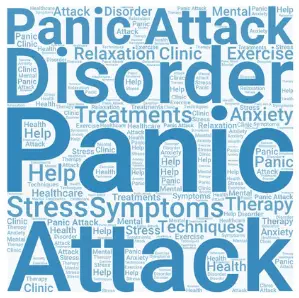Panic attacks are anxiety disorders characterized by sudden, intense episodes of fear or discomfort. These episodes can include physical symptoms such as heart palpitations, shortness of breath, and trembling. They can also have mental symptoms such as fear of losing control or going crazy. Panic attacks last for a few minutes, but the effects can last much longer.

During a panic attack, the body’s sympathetic nervous system gets activated. This causes a range of physical and mental changes. The heart rate increases, blood pressure rises, and breathing becomes shallow and rapid. This can lead to feelings of dizziness, light-headedness, and chest pain. The individual may also experience fear, terror, or a sense of impending doom. In some cases, people may feel like they are choking or having a heart attack.
Panic attacks can be very frightening and debilitating. But, it is important to remember that they are not dangerous and do not cause any physical harm. With proper treatment, most people can overcome these attacks and live everyday, healthy lives.
A panic attack can be very frightening and uncomfortable. During a panic attack, feeling like you are losing control or going crazy is common. But these sensations are only temporary. What matters during a panic attack is the focus on oneself, and the lack of control one feels.
During a panic attack, the body activates a fight-or-flight response. This type of attack causes a surge of adrenaline and an increase in heart rate, blood pressure, and respiration. The person may also experience chest pain, shortness of breath, dizziness, and trembling. Sometimes, people may feel like they are having a heart attack or going crazy.
When you’re in the throes of a panic attack, it can feel like the end of the world. But you can take steps to ease your symptoms and get through it.
First, try to focus on your breath. Take slow, deep breaths and count to four as you inhale, then count to four as you exhale. This will help you slow down your racing heart and calm your mind.
Next, try to focus on something else. Distract yourself with a favorite activity or a positive memory. This can help take your mind off of the panic attack and ease your symptoms.
Finally, remember that panic attacks are not dangerous. They may be uncomfortable, but they will eventually end. Ride out the attack and focus on taking slow, deep breaths until the attack passes. With these simple steps, you can get through a panic attack and come out feeling stronger on the other side.
In conclusion, panic attacks are a type of anxiety disorder characterized by sudden, intense episodes of fear or discomfort. These episodes can include physical symptoms such as heart palpitations, shortness of breath, and trembling. They can also have mental symptoms such as fear of losing control or going crazy.

